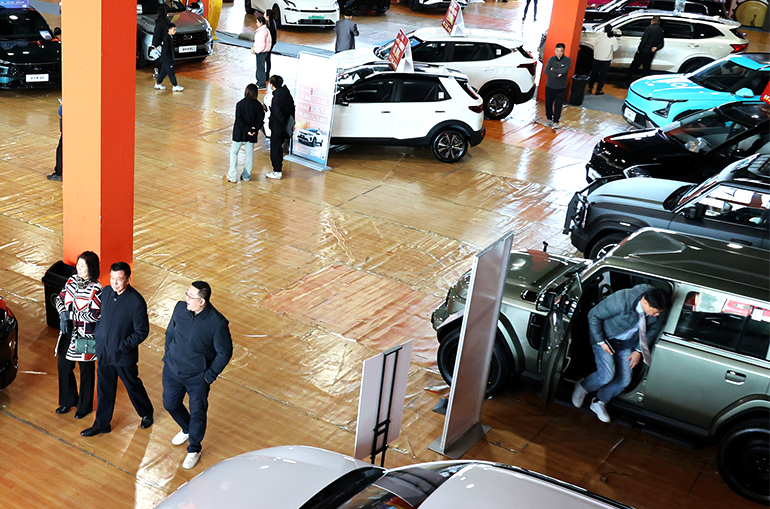 Fewer Chinese Car Dealers Lost Money Last Year as Gov’t Subsidies Stoked Demand
Fewer Chinese Car Dealers Lost Money Last Year as Gov’t Subsidies Stoked Demand(Yicai) March 14 -- The percentage of unprofitable auto dealers in China shrank last year, mainly because government subsidies introduced in the second half of the year lifted vehicle demand.
Forty-two percent of car dealers reported losses for 2024, compared with 51 percent in the first half of the year and 44 percent in 2023, according to a the findings of a survey conducted by the China Automotive Dealers Association.
Despite the improvement, with over 40 percent of them posting losses, dealers remained under severe pressure last year amid fierce competition. Only 39 percent were profitable, while 19 percent of them broke even, the CADA report showed.
Demand in the Chinese auto market, the world’s largest, weakened at the beginning of last year but rebounded in the second half after the government introduced a vehicle trade-in policy, which offers subsidies for consumers who scrap old cars and buy new ones.
In 2024, over 48 percent of dealers surpassed their annual sales targets, compared with under 30 percent the previous year, according to the CADA. Meanwhile, 30 percent of them achieved between 80 percent and 100 percent of their sales goals.
Luxury auto dealerships slightly outperformed joint-venture and Chinese auto brands in terms of target completion rates, the CADA noted.
Intensifying competition forced automakers and dealers to adopt volume-over-margin strategies, aggressively competing for market share, said Lang Xuehong, deputy secretary-general of the CADA. This slashed gross margins at dealerships and exacerbated the trend of selling below cost, she added.
Over 84 percent of car dealers in China experienced price inversions, and more than 60 percent offered discounts of over 15 percent, CADA data also showed. The severe inversions eroded dealers’ working capital, making liquidity constraints the greatest difficulty and risk they face.
But the report also noted that dealers and agents for independent new energy vehicle brands exhibited notably strong profitability in new car sales. Consequently, some that once specialized in luxury brands are now distributing popular Chinese NEV marques such as Aito.
Even though NEV brands offer lower sales commissions than luxury combustion engine marques, high sales volumes ensure reasonable profits, a dealer who switched told Yicai. Commission rates on luxury models have also dropped.
China’s retail sales of new energy passenger vehicles surged 41 percent to nearly 10.9 million units last year from 2023, according to data from the China Passenger Car Association.
Editor: Futura Costaglione